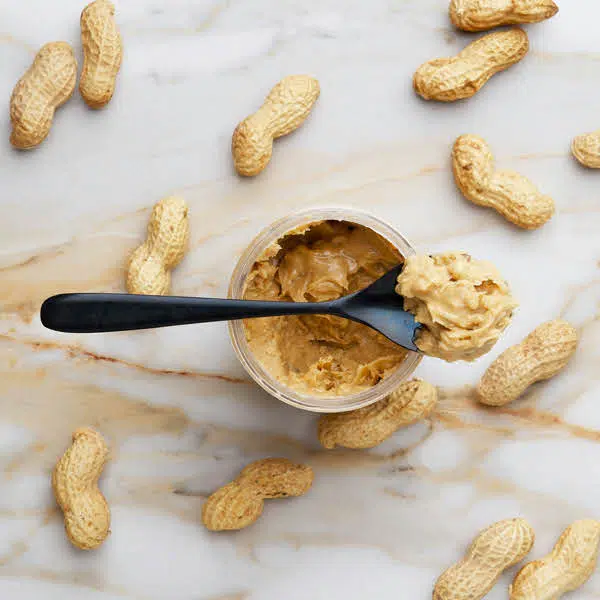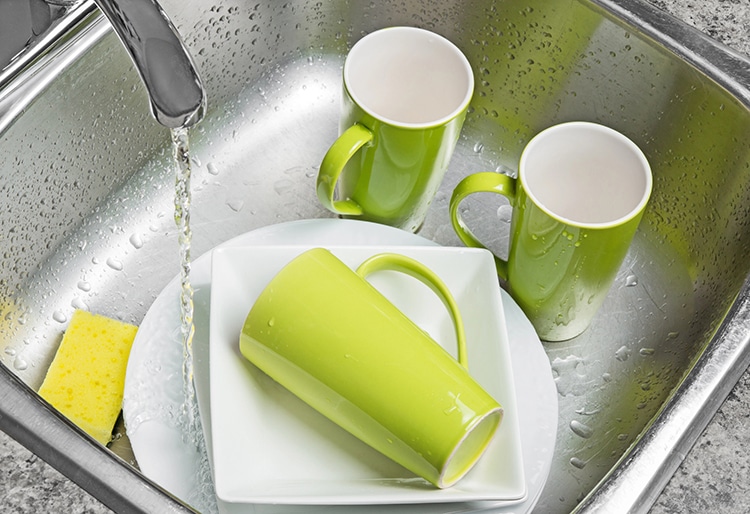
Photo: StudioLightAndShade /Depositphotos
Many office workers have a beloved coffee mug that they cling to for dear life. It's common for people to become possessive over their precious cup, which serves both as a vessel for their caffeine boost and an expression of their personality. It also acts as a conduit for warm drinks which have been shown to improve metaphorical feelings of warmth. Despite the comfort the humble office mug may bring, researchers have suggested that there might be something sinister lurking within.
Dr. Charles Gerba, microbiologist and professor at the University of Arizona, told LifeHacker that “around 90% of most office coffee mugs harbor dangerous germs, and 20% of those carry fecal bacteria.” Where are those dangerous germs coming from? Probably the cleaning process itself. Kitchen sponges and sinks are rife with bacteria and viruses that make your toilet pale in comparison. A communal sink and sponge only exacerbates the problem as they are cesspools for germs.
Is this vindication for the less hygienically minded among us who are happy with a quick rinse of their mugs? Maybe. But don't let sugar or milk sit in your mug. As infectious-disease expert Jeffrey Starke, professor at Baylor College of Medicine, explains, “If you leave cream or sugar in your mug over the weekend, that can certainly cause mold to grow.” In that case, the best solution is taking your mug home to wash it. Alternatively, you can avoid touching kitchen surfaces and only use disposable paper towels during your wash-up. Of course that might be frustrating news to the eco-conscious who only have a reusable mug to limit paper waste.
So, what's the answer to the age-old question How often should you wash your office coffee mug? Ultimately, there is no clear-cut solution for all. For extra precaution, the main pieces of advice appear to be to rinse your office cup after every use, avoid using a communal sponge, and take the cup home for a clean in the dishwasher each day.
Scientists encourage washing your office coffee mug often, but not necessarily with a sponge.
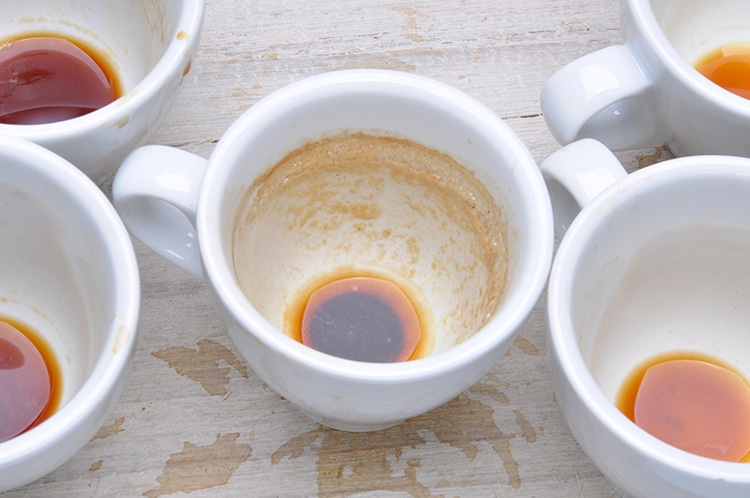
Photo: Zetor2010/Depositphotos
If you keep your coffee mug in an office kitchenette, it's bound to have bacteria on it and the likelihood of dangerous germs is greater with the use of a communal sponge.

Photo: seb_ra/Depositphotos
Microbiologists suggest that “around 90% of most office coffee mugs harbor dangerous germs, and 20% of those carry fecal bacteria.”
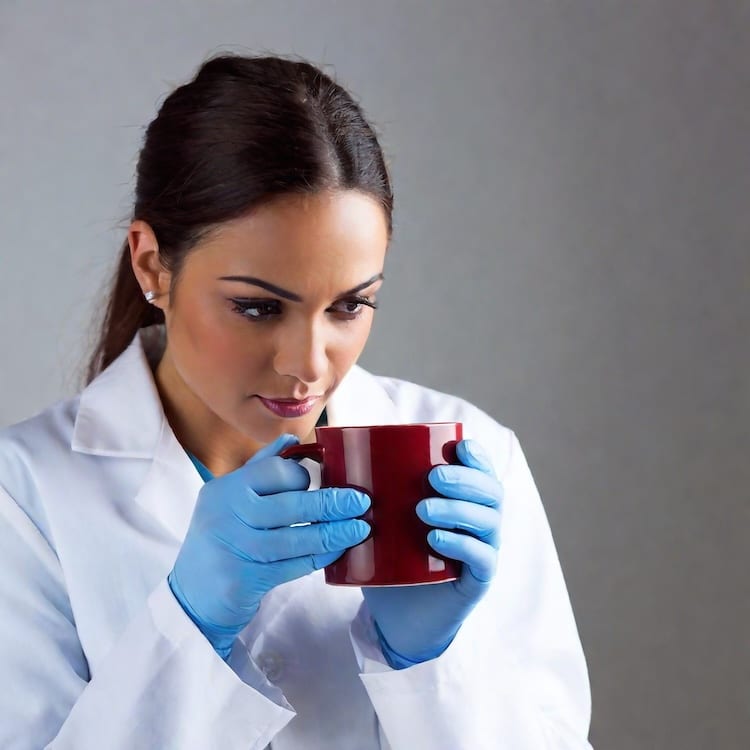
Photo: AI-generated image via Depositphotos
So, your best option is to rinse your cup in the office, and then take it home for a cleaning in the dishwasher.
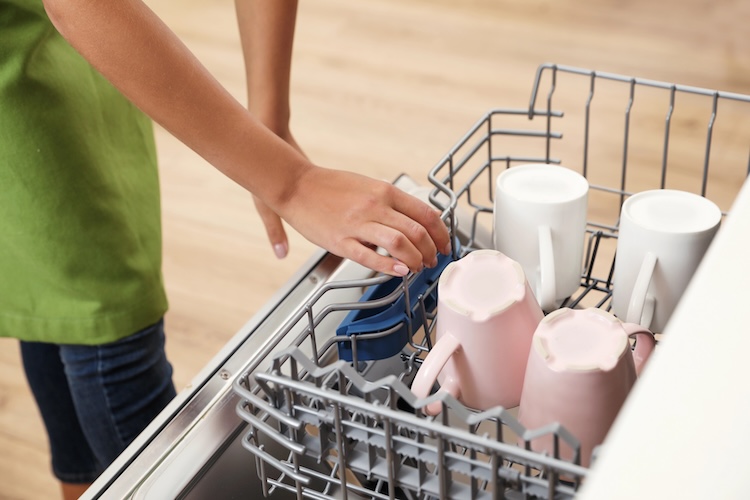
Photo: NewAfrica/Depositphotos
h/t: [IFL Science]
Related Articles:
Cozy Fireplace Mugs That Look Like They Belong in Mini Homes
Macro Photos Reveal the Often Unseen Beauty and Diversity of Slime Molds
This Heat-Activated Mug Reveals Facts About the Universe When You Add Hot Coffee
Moldy Bread Science Experiment Is a Gross Reminder of How Many Germs Are on Our Hands






















































































